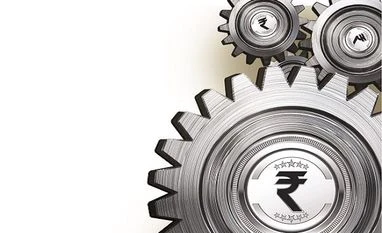Domestic rating agency Crisil on Friday lowered its real GDP growth forecast for India to 7.3 per cent in FY23 from 7.8 per cent estimated earlier.
It attributed the downward revision to higher oil prices, slowing of export demand and high inflation.
This is in line with the RBI's estimate of 7.2 real GDP growth for this fiscal year.
Crisil said there are a slew of negatives like high commodity prices, elevated freight prices, drag on exports as global growth projections get lowered, and the largest demand side driver of private consumption remaining weak.
The only bright spots are the uptick in contact-intensive services and forecast of a normal and well-distributed monsoon, it said, lowering its growth outlook.
Inflation, which has been pegged to average at 6.8 per cent in FY23 as against 5.5 per cent in FY22, reduces purchasing power and would weigh on revival of consumption the largest component of GDP which has been backsliding for a while, the agency said.
More From This Section
Factors contributing to the broad-based rise in inflation will include the impact of this year's heatwave on domestic food production, coupled with persisting high international commodity prices and input costs, it said.
The agency also said that with higher commodity prices, slowing global growth and supply chain snarls, the current account will be impacted, and estimated the current account deficit to widen to 3 per cent of GDP in FY23 from 1.2 per cent in FY22.
This will put pressure on the currency, and the rupee is estimated by the agency to be at 78 to the US dollar in March 2023, compared to 76.2 in March 2022.
The rupee-dollar exchange rate will remain volatile with a depreciation bias in the near term due to a widening trade deficit, foreign portfolio investment (FPI) outflows and strengthening of the US dollar index (owing to rate hikes by the US Federal Reserve, or Fed, and safe-haven demand for the dollar amid geopolitical risks), it said.
The agency expects global crude to average between USD 105-110 per barrel in FY23, which is higher by 35 per cent when compared to the last fiscal year's and will be the highest price since 2013.
High commodity prices have a domino effect on India. As the terms of trade worsen with a rising import bill, imported inflation surges, it said.
With inflation rising, the RBI is expected to hike rate by another 75 basis points during the fiscal on top of the 90 basis points hikes already announced, it said.
It, however, said that the rising interest rates will not dent growth prospects in a big way as real interest rates are likely to remain lower than the pre-pandemic levels and monetary policy actions get transmitted with a lag, it said.
)